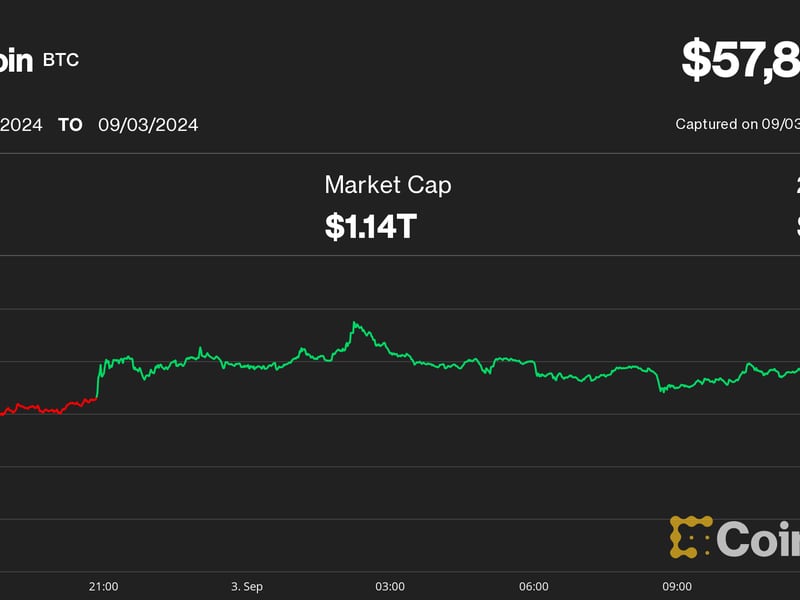Bitcoin Miners Show Muscle Pushing Back Against Warrantless ‘Emergency’ Order
Bitcoiners have struck a significant victory in their push to strike down the U.S. Department of Energy’s statistics unit’s “emergency” bitcoin mining order. According to court documents, the Energy Information Administration is dropping its mandatory survey sent to hundreds of miners in favor of the proper notice and comment period required by law. The EIA hastily announced the order in early February, calling the data request a matter of national importance.
This is an excerpt from The Node newsletter, a daily roundup of the most pivotal crypto news on CoinDesk and beyond. You can subscribe to get the full newsletter here.
This comes as a response to the lawsuit filed by the Texas Blockchain Council, Riot Platforms, New Civil Liberties Alliance and Chamber of Digital Commerce against the DOE, which in February won a temporary restraining order that limited the government’s ability to collect data. The court overseeing the case wrote that it’s “likely” the justification for the original emergency order request fell “short.”
From the jump, the crypto industry was able to mobilize and call out the shaky justification for the bill. It was a rare moment where, seeing the threat of undue regulatory interference , industry insiders decided to fight back.
For instance, in a CoinDesk op-ed, Lee Bratcher of the Texas Blockchain Council wrote that the data request could easily be politicized and inflame incomplete narratives about how the blockchain industry interacts with the national grid. The New Civil Liberties Alliance said the EIA’s report likely stemmed from “political pressure” rather than a desire to prevent “public harm.”
The EIA is now going to try to get the data — which could be genuinely useful — via means that do not trample on people’s constitutional rights. It will publish a notice in the Federal Register about its proposal and destroy any information already collected, according to court docs.
Notably, the original survey request lacked any information about how the government would protect potentially sensitive corporate information, or whether it would be anonymized if published publicly, which is standard practice for this type of data gathering, Bratcher, who worked in the DOE, said.
More to the point, as Riot and the other plaintiffs alleged in their suit, crypto miners would be “immediately and irreparably harmed by being forced to divulge confidential, sensitive and proprietary information to the EIA.” The survey presented the threat of criminal penalties if the miners failed to respond.
Bratcher said the information gathering could ultimately shine light on an increasingly important sector. But he wishes the EIA would work with the industry to design a more accurate and helpful survey. It should, for instance, ask not only how much energy miners draw and from what providers, but also how their flexible electricity consumption can benefit the grid and incentivize greener sources of energy production.
In Texas, miners work directly with the state grid operator to power down during periods of stress on the network — like during the winter storm in 2021 that left millions without access to power. Which makes it ironic that the justification for the EIA’s emergency order was in part to assess how mining could lead to “public harm.”
The EIA will now open a 60-day public comment period, beginning on the date of publication of the new Federal Register notice.
While the survey will likely come back in some form, this moment is a real victory for an industry that appears to be in the crosshairs of U.S. officials. Not only do figures like Securities and Exchange Commission Chair Gary Gensler, Treasury Secretary Janet Yellen and Senator Elizabeth Warren constantly equate crypto with fraud, but, arguably, they’re actively engaged in wiping it off the map.
It’s notable that Warren has been calling to stamp down on the mining sector, and that states including New York are passing moratoriums meant to slow its development. Sometimes, when crypto fights back — like in the case of Ripple vs. the SEC — it’s able to score a win when given a fair hearing in the courts.









